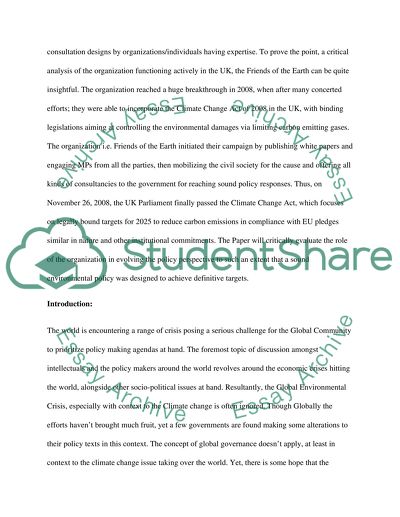Cite this document
(“A critical evaluation of the role of Friends of the Earth in the Essay”, n.d.)
Retrieved from https://studentshare.org/miscellaneous/1631487-a-critical-evaluation-of-the-role-of-friends-of-the-earth-in-the-development-of-policy-responses-to-climate-change-in-the-united-kingdom
Retrieved from https://studentshare.org/miscellaneous/1631487-a-critical-evaluation-of-the-role-of-friends-of-the-earth-in-the-development-of-policy-responses-to-climate-change-in-the-united-kingdom
(A Critical Evaluation of the Role of Friends of the Earth in the Essay)
https://studentshare.org/miscellaneous/1631487-a-critical-evaluation-of-the-role-of-friends-of-the-earth-in-the-development-of-policy-responses-to-climate-change-in-the-united-kingdom.
https://studentshare.org/miscellaneous/1631487-a-critical-evaluation-of-the-role-of-friends-of-the-earth-in-the-development-of-policy-responses-to-climate-change-in-the-united-kingdom.
“A Critical Evaluation of the Role of Friends of the Earth in the Essay”, n.d. https://studentshare.org/miscellaneous/1631487-a-critical-evaluation-of-the-role-of-friends-of-the-earth-in-the-development-of-policy-responses-to-climate-change-in-the-united-kingdom.


